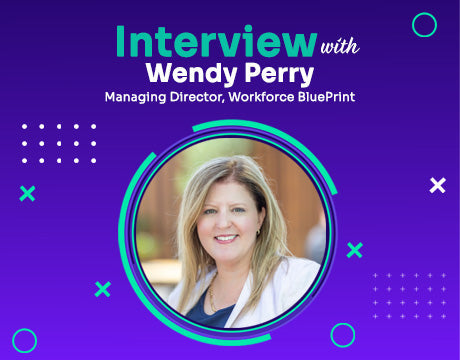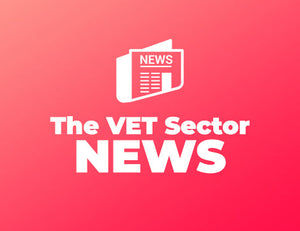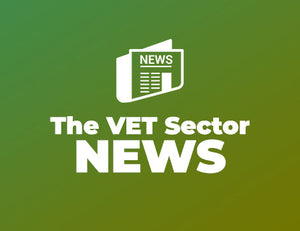
Interview with Wendy Perry - Managing Director, Workforce BluePrint
SUKH SANDHUBio:
Wendy Perry who is the Managing Director of Workforce BluePrint, Entrepreneur Facilitator for Adelaide – West, Switch Start Scale and Facilitator for Sea to Valley Startups . An author, entrepreneur & educator, explorer & innovator, mentor & speaker on Entrepreneurship & Innovation, Workforce Planning & Development, Vocational Education & Training (VET) & TVET, International Capability & Capacity
Development, mentoring & facilitation are strengths with Wendy working alongside entrepreneurs, founders, individuals, organisations, startups, scaleups, students & unicorn companies.
A reputation as a leading authority on Workforce Planning & Development & Vocational Education & Training (VET) is well earned with extensive experience working in Agriculture, Banking & Finance, Building & Construction, Civil Construction, Community Services, Contact Centres, Defence, Disability, Education, Employment Services, Energy, Events, Food & Wine, Government, Health, Higher Education, ICT, Manufacturing, Mining & Resources, Sport & Recreation, Small Business, Telecommunications, Tourism, Vocational Education & Training (VET), & Water sectors.
Intro: Your expertise in RTO consulting makes you a highly successful businesswoman. As someone who has known you for over 25 years regarding your invaluable contribution to the Australian vocational education and training sector and advertising the Australian brand of education abroad, I would like to thank you for participating in this interview.
Questions:
Having been in this industry for a long time, how has your journey been?
The journey has been like any relationship. Sometimes you enjoy it and other times you don’t, things can be outside of your control and it can feel like history is repeated at times. There are perennial issues that are discussed over and over again, similar initiatives announced that haven’t necessarily worked in the past, and now a radical step change is needed.
How did you become interested in vocational education and training?
I first became interested in VET because my career began as a trainee for the South Australian State Government. Enjoying the learning environment and taking up any development opportunity I remember having a meeting with a Manager at the RTO and asking how I became a trainer/assessor. The first role I had was teaching business and office studies, as well as work preparation at the age of 21 years.
In your opinion, what makes Australian vocational education and training unique?
The Australian VET system has some assets such as the system of Training Packages and the involvement of industry sectors in the development of training products, however this process needs to be far quicker and more responsive. Internationally Australia does mostly have a good reputation, particularly where innovative providers are taking things to the next level and working ahead of Training Package development, but that can be damaged by poor practices. Close ties with industry partners, undertaking training needs analysis, designing programs that fit the current job roles, integrating UN Sustainable Development Goals, state of the art equipment, premises and technologies, designing microcredentials, are all areas where some providers stand out.
Why do you think Australian vocational education and training providers are so successful at attracting international students?
When it comes to attracting international students the Australia, State and Territory Governments, peak bodies and providers have put time, energy and effort into building relationships. Australia is a destination to study and live that is high up on the list, particularly for students drawn from the Asia Pacific region, and a position that shouldn’t be jeopardised. Qualifications are generally well regarded and there are organisations, such as Study Adelaide and their equivalent in other states that support students to make the experience enjoyable and rewarding.
What are the economic benefits of vocational education and training in Australia?
Economic benefits relate to areas of productivity, workplace health and safety, innovation, and growth, however there is a risk that many of the current Training Packages and VET qualifications are out of date. This fundamental basis of the Australian VET system requires innovation and growth hacking, where evidence of the return on investment could be made directly in addressing current labour and skills shortages.
Do you think Australian vocational education and training has a bright future?
The Australian VET system could have a bright future if there was a national vision for the workforce and the sector, as well as future orientated products because Training Packages need renovation. When you work in other countries you often see rolling 5-year plans for VET/TVET so this is a missed opportunity for Australia at the moment. The sector does need to be reimagined, bearing in mind international stand outs like New Zealand, Scotland, Singapore, UK, USA, Vietnam, Germany and Finland.
In what ways do Australian vocational education and training providers face challenges?
Australia has many more providers than just about any other country per capita and this is a problem because it can lead to poor quality and wrong motivations to get involved. The number one challenge is relevance and this is based upon the ‘products’ and ‘ methodologies’. Like every other sector at the moment, attracting and retaining capable staff is an issue, brand management where there might be negative media reports and unscrupulous providers, navigating the mix of industry advice which can seem messy, and the funding model for VET which requires serious rethinking.
What do you think are the opportunities for Australian vocational education and training providers?
The main opportunities for providers are in product innovation and exploring new methodologies for delivery and assessment, alongside fresh ways to work effectively with employers and entrepreneurs, government and industry, regions and countries, small medium enterprises and startups, regulators and international partnerships.
Taking more of an approach like the EdTech sector, applying an entrepreneurial, problem solving mindset, and building upon what has worked well in the last, plus international opportunities are top tips.
What are your views and thoughts on the current regulatory environment, standards and practices?
There is an opportunity to have one effective and efficient VET regulator in Australia and to learn from top countries that we should benchmark against.
The current VET regulatory workload seems overwhelming, inefficient and costly – there must be a better way. It is important to have standards but not where it means that you can’t innovate or try something new.
Can you tell me about the services and resources you provide for Australian vocational education and training and higher education?
Services include strategies workforce planning and development, professional development and key notes, coaching and mentoring, delegation and tour hosting, webinars and workshops.





